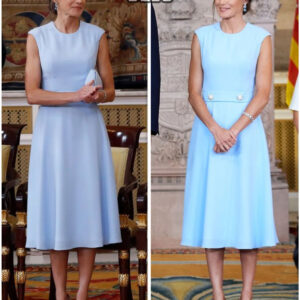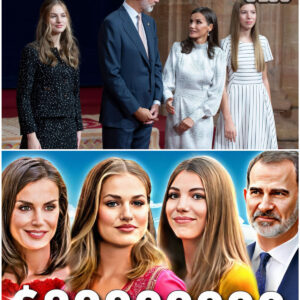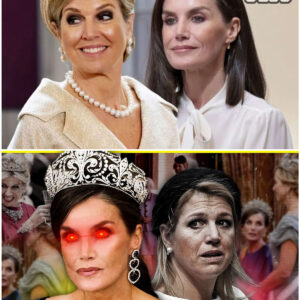Ice Cube Exposes Oprah Winfrey and Hollywood Gatekeeping
In a bold and revealing statement, Ice Cube, the influential rapper and actor known for his outspoken views on social issues, has taken aim at Oprah Winfrey and what he describes as Hollywood’s gatekeeping practices. His remarks have sparked a heated debate about power dynamics, representation, and accountability within the entertainment industry.
Ice Cube’s criticism centers on Oprah Winfrey, a media mogul celebrated for her philanthropy and cultural influence. In a series of interviews and public statements, Ice Cube has accused Winfrey of wielding her power to control narratives and limit opportunities for diverse voices within Hollywood.
He alleges that Winfrey’s influence has perpetuated a system that favors certain narratives and marginalizes others, particularly those of black artists and entertainers.
The concept of gatekeeping refers to the control exerted by influential figures or institutions over access to opportunities and resources within an industry. In Ice Cube’s view, Winfrey’s position as a gatekeeper in Hollywood has significant implications for who gets to tell stories, who receives recognition, and whose voices are amplified in mainstream media.

Ice Cube’s critique challenges the perceived benevolence of powerful figures like Winfrey, suggesting that their actions may inadvertently contribute to systemic inequalities and barriers to entry for marginalized communities within the entertainment industry.
The controversy ignited by Ice Cube’s statements has reignited discussions about diversity, representation, and inclusion in Hollywood. Many have praised Ice Cube for bringing attention to the complexities of power and influence in shaping cultural narratives, while others have questioned the validity of his accusations and the potential consequences of his outspoken stance.
The ongoing debate underscores broader concerns about the need for greater transparency and accountability among industry leaders, particularly those who hold significant sway over public perception and media discourse.

Ice Cube’s critique of Oprah Winfrey and Hollywood gatekeeping has elicited a range of responses from various quarters. Supporters applaud his courage to challenge entrenched power structures and advocate for a more equitable industry. Critics, however, argue that his accusations may oversimplify complex issues and overlook the contributions of influential figures like Winfrey to diversity and social justice initiatives.
Meanwhile, industry insiders and cultural commentators continue to analyze the implications of Ice Cube’s statements on the future of Hollywood and the ongoing struggle for representation in media.
As the controversy surrounding Ice Cube’s critique unfolds, there is a growing call for meaningful dialogue and action to address systemic inequalities within the entertainment industry. The spotlight on gatekeeping practices and the influence of powerful figures like Oprah Winfrey underscores the need for greater transparency, accountability, and inclusivity in shaping the future of media and storytelling.

Ice Cube’s outspoken advocacy serves as a catalyst for deeper conversations about the responsibilities of industry leaders and the potential impact of their decisions on diversity and representation. His call to expose Hollywood gatekeeping challenges the status quo and invites stakeholders to reconsider their roles in promoting equity and fairness within the industry.
Ice Cube’s bold critique of Oprah Winfrey and Hollywood’s gatekeeping practices has sparked a significant debate about power, influence, and representation in the entertainment industry. His statements underscore broader concerns about systemic inequalities and the need for greater accountability among industry leaders.
As discussions continue to unfold, Ice Cube’s advocacy for transparency and inclusivity serves as a rallying cry for change within Hollywood. Whether his critique leads to tangible reforms remains to be seen, but his efforts have undeniably reignited important conversations about the future of media and the imperative to amplify diverse voices in storytelling.
News
Los científicos finalmente abrieron la tumba de Goliat después de miles de años, descubriendo secretos que sorprendieron y confundieron a todos.
Los científicos finalmente abrieron la tumba de Goliat después de miles de años, descubriendo secretos que han dejado a todos en shock y confusión. Este monumental descubrimiento, que durante mucho tiempo ha sido tema de especulación y mito, ha producido…
LA PRINCESA LEONOR y LA INFANTA SOFÍA PARALIZAN ACTO REAL con SORPRESA PARA EL REY FELIPE ¡LLORARON
La Princesa Leonor y la Infanta Sofía Paralizan el Acto Real con Sorpresa para el Rey Felipe: ¡Lloraron! En el corazón de la vida pública española, los eventos reales suelen ser espectáculos de protocolo, elegancia y seriedad. Sin embargo, a…
5 insólitas costumbres de la Familia Real Española que Letizia Ortiz se niega a seguir
Conoce las ocasiones en las que el carácter rebelde la esposa del rey Felipe VI ha salido a relucir al resistirse a formar parte de las costumbres de los Borbón Letizia se mantiene renuente a seguir algunas de las costumbres…
El estilo de vida ultra lujoso de la Familia Real Española
El Estilo de Vida Ultra Lujoso de la Familia Real Española La Familia Real Española, encabezada por el Rey Felipe VI y la Reina Letizia, es un símbolo de elegancia y sofisticación. Su estilo de vida ultra lujoso no solo…
EL ODIOSO MOTIVO POR EL QUE LA REINA LETIZIA DE ESPAÑA RIVALIZA CON LA REINA MÁXIMA DE HOLANDA
El Odioso Motivo por el que la Reina Letizia de España Rivaliza con la Reina Máxima de los Países Bajos: Un Conflicto de Estilo y Poder En el mundo de la realeza, donde la imagen y la percepción pública juegan…
La Princesa LEONOR: El Lado Desconocido de su LUJOSA VIDA
La Princesa Leonor: El Lado Desconocido de su Lujosa Vida La Princesa Leonor de Borbón, heredera al trono de España, es una figura que despierta un interés considerable tanto en el ámbito nacional como internacional. A menudo vista en eventos…
End of content
No more pages to load











